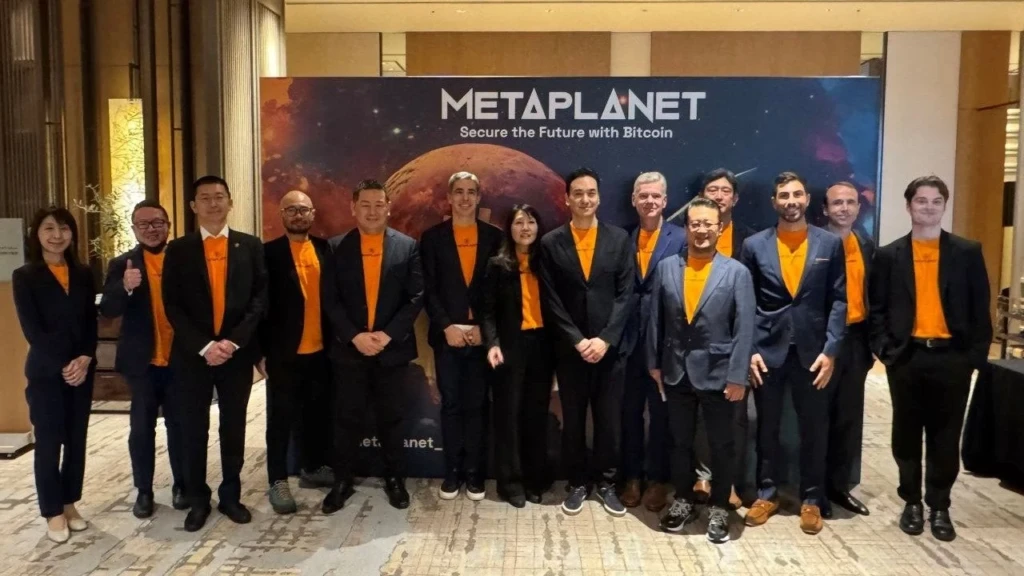Bitcoin treasury firm Metaplanet is making headlines with its ambitious plan to acquire a Japanese digital bank—backed not by fiat, but by its Bitcoin holdings.
The Tokyo-based company has confirmed it’s evaluating strategic acquisitions, with its 15,555 BTC stack—currently worth over $900 million—set to be used as collateral. This would mark a significant milestone in corporate crypto adoption, where Bitcoin moves beyond reserve asset status and becomes leverage for real-world finance.
From Hotel Chain to Crypto Powerhouse
Metaplanet, formerly a hotel operator, has pivoted sharply into the crypto space over the past two years. The firm has rapidly climbed the ranks to become one of the top five public Bitcoin holders, behind giants like MicroStrategy. CEO Simon Gerovich says the company is now targeting “cash-generating assets,” and a digital bank is at the top of the list.
“We’re not just holding Bitcoin to speculate—we’re using it to build,” said Gerovich. “This acquisition aligns with our vision of integrating Bitcoin into the foundation of modern finance.”
What This Means for Crypto Finance
If completed, the deal would mark one of the first times a public company has used its Bitcoin treasury to back the acquisition of a licensed financial institution. Analysts say this could pave the way for more crypto-native firms to participate directly in traditional finance—on their own terms.
“This isn’t just another company holding BTC,” said blockchain analyst Emi Nakamoto. “It’s a company wielding Bitcoin as a strategic business tool.”
A Signal to the Market
Metaplanet’s move reflects broader trends where crypto assets are becoming functional capital in corporate strategy. As regulatory clarity improves in regions like Japan, more firms may begin to treat Bitcoin not just as a hedge, but as leverage.
A recent Bloomberg report confirms that Metaplanet is actively in talks with regulators and potential targets. Whether the deal goes through or not, the message is clear: Bitcoin’s role in the corporate world is evolving.

